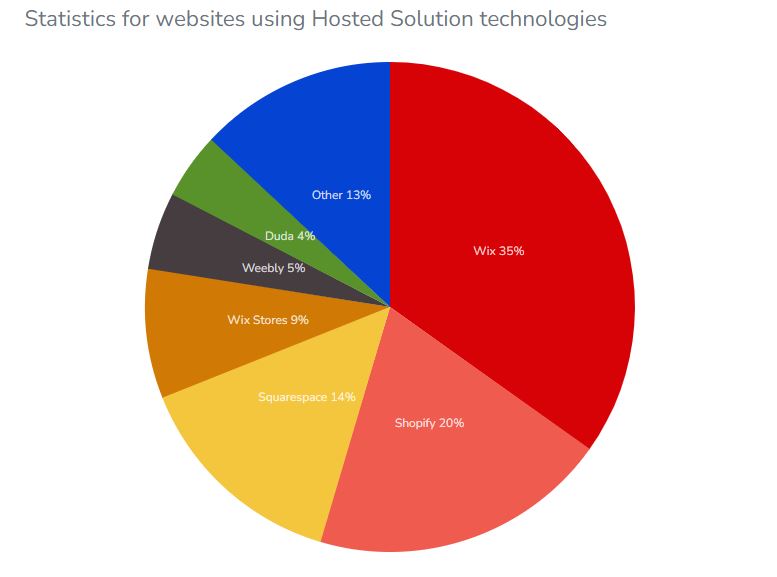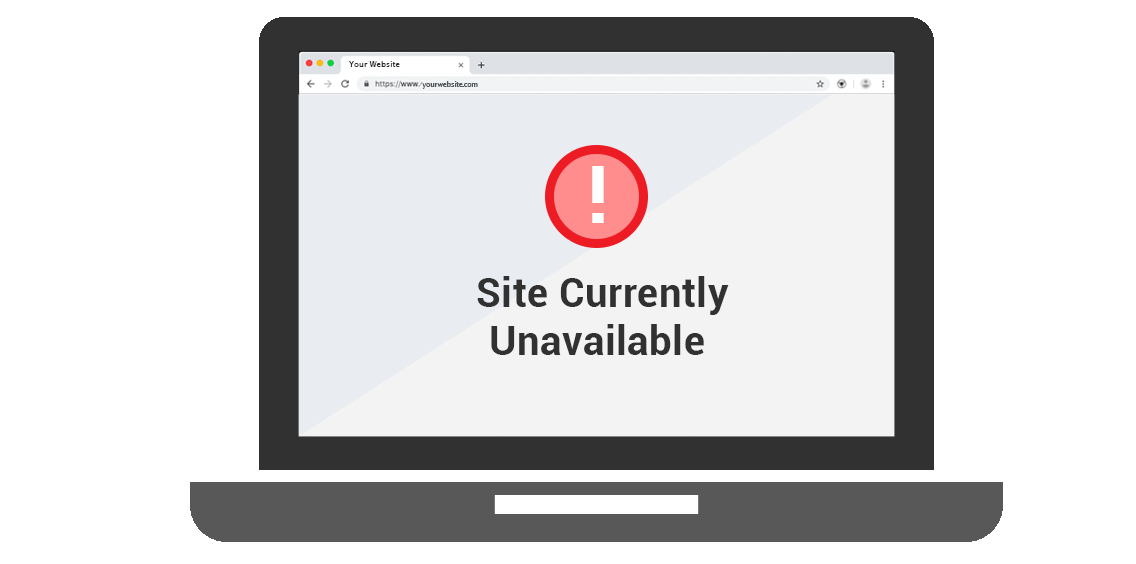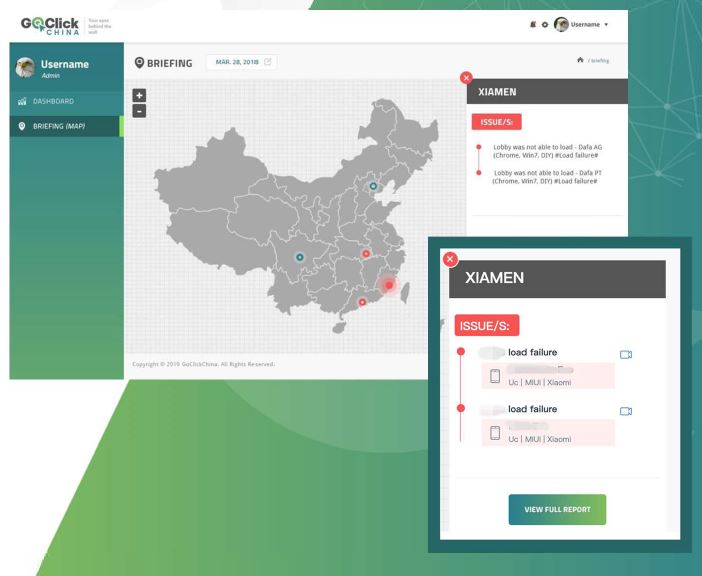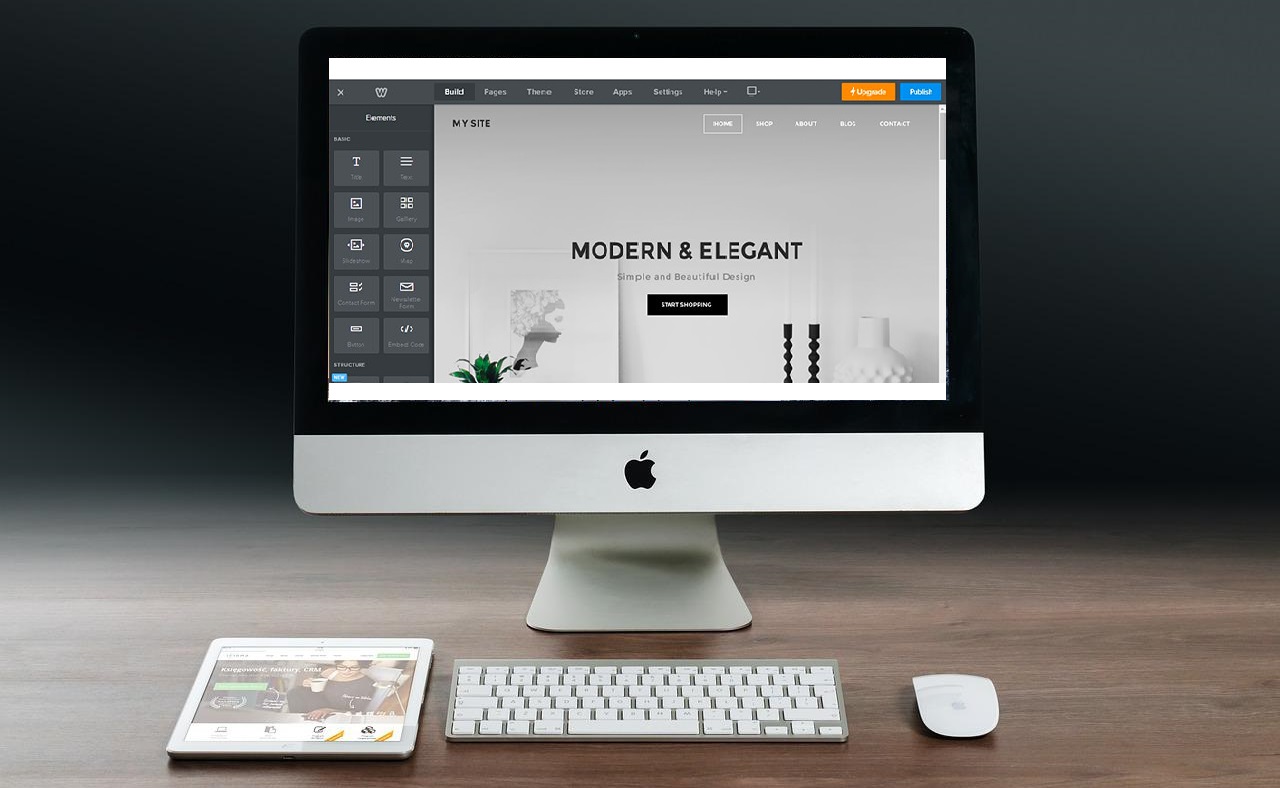Website builders are a popular solution to quickly and easily create a website or webshop. Wix, Shopify, and Squarespace alone have nearly 14 million websites operating on them, according to data from BuiltWith. But many of the websites created by these website builders won’t work in China.
In this article, we will look at why many popular website builders are not suited for businesses targeting the Chinese market, the specific problems these website builders run into, and how to solve them.
Examples of popular website builders
Shopify is a website builder for e-commerce stores. After signing up, you type in your store’s details, add products, and can start selling almost immediately.
Shopify comes with many prebuilt themes that are arranged around categories, such as “single-product store,” “small catalogs,” “large catalogs,” etc. There are also many layout styles such as Wide, Grid, Collage, and so on.
In common with many other website builders, you are then able to drag and drop elements in the layout, choose the color scheme, tweak the font, and make other changes easily using its WYSIWYG (What You See Is What You Get) editor.
Get to know more about how Shopify chooses its top-level domain.
Wix is the world’s most popular website builder, judging by the number of websites hosted on it. You can also create webshops on Wix, but you are not limited to this like you are in Shopify.
To build a website on Wix, you must first pick a template. You can then add advanced features to it, such as a blog, online store, or a feature to accept bookings online. Finally, you are able to edit the mobile view of the site to ensure it works properly on mobile.
Other popular website builders include:
- Weebly: Pick a template, then customize it using drag and drop features. It also supports e-commerce websites.
- Squarespace: A competitor to Shopify, Squarespace focuses on e-commerce websites. After signing up, you choose a template and tweak the design within your browser.

Common problems of these website builders in China
These website builders are not directly blocked by the Great Firewall of China. But the websites created on these platforms can have problems when users from China try to access them.
Let’s look at some of the common reasons why this could happen:
Network issues
A single website can be made up of hundreds of resources. If any single one of these resources is blocked in China, the entire site could have problems.
These resources can include connections to social media sites, such as an embedded Twitter feed. Or the resource could be a connection to a Google service to provide a simple mapping or translation function on the website.
In China, many of these resources are either entirely blocked, or access to them is extremely slow. So, even though the website itself might be accessible, many elements within it might not be.
This can also apply to key elements such as styling sheets that are crucial for the proper display of the website.
Infrastructure Issues
Distance is a factor in website speed. If a user in China is trying to access content stored in the USA, it will be slower than trying to access it from a server within China.
Many companies solve this through a Content Delivery Network (CDN) such as Amazon Cloudfront or Fastly.
A CDN distributes content across a network of worldwide servers. When users make a request for a website, the CDN will then try to provide content from the server that is closest to that user.
But if the closest server to China is, say, in Israel, then that’s the server that the CDN will use.
Timeouts
In addition to the drag-and-drop features provided by website builders, you can often include your own custom files. These can include font files, CSS files, or JavaScript files.
This can open a wide array of issues for websites being accessed from within China: For example, a font or CSS file might be hosted on a CDN that is too far away, or it might be hosted on a site that is blocked such as Google Hosted Libraries.

Blocked media files
Popular video embedding services such as YouTube and Vimeo would not work from within China. Some website builders offer easy integration with these video providers, making it the logical choice for anyone wanting to add a video to a page.
But embedding a video from one of these providers means it will not be able to be viewed from within China.
Some other embeddable media providers that are blocked include:
- Dailymotion
Read more: WebRTC in China, a golden opportunity or a dead end?
How to make your website work in China if it was created on these website builders
Let's look at some potential ways to mitigate the errors above:
Code-based errors
Using a CDN or even hosting a website on a near-China server won’t fix any code-based problems. If the code tries to access blocked domains (such as Google Hosted Libraries or Facebook), the broken site will remain broken.
Popular website builder sites pride themselves on their “Black box” approach to creating a website. You don’t need to know any programming. You just need to open up the WYSIWYG editor and design.
Unfortunately, that same black box paradigm is what will prevent you from getting deep into the bowels of the code to fix it. It might be possible, but it is unlikely.
Still, if you are able to get into the code, that's a key place to start to get your website functioning inside China.
Western CDNs are slow in China
Having a CDN in New York or Frankfurt to serve content to a China-based visitor completely defeats the purpose of getting a CDN in the first place. The whole point of a CDN is to find the server that is nearest to the website visitor so that requests can be performed more rapidly.
It is purely a matter of physics. The further something must travel, the longer it will take to arrive, all other factors being the same.
Add to that, China’s Great Firewall which might either block or severely throttle content from certain companies, and it suddenly becomes clear that using a non-China-based CDN is a bad idea.
According to statistical data from Citrix, testing various CDNs' 100KB throughout, popular western CDNs perform dismally in China when compared to other CDNs that have servers inside China, such as CDNetworks.
The solution is to get a CDN that is based inside China, officially authorized to operate within China.

Host on a server inside mainland China
It might be simply easier to move away from the website builders completely.
The black-box nature of these companies means that it will be extremely difficult—and likely also costly—to change their basic functionality.
And there is always the chance that the website builder platform changes something which then breaks your site when accessed from mainland China.
Hosting inside China is the obvious solution—but getting in the door can be complicated for foreigners, especially for those who don’t speak Chinese.
To host on a server inside China, you need an Internet Content Provider (ICP) License. This applies whether you are a local or international business. Any website that does not have this license runs the risk of being throttled by the Chinese Ministry of Industry and Information Technology (MIIT).
To get an ICP license, you need to have a physical presence in China. To get around this, you can use an affiliate such as GoClick China.
Use Chinese Website Builders
China has its own website builders. The challenge for foreign companies is that many of these builders are written entirely in Chinese special characters.
This is a hurdle worth overcoming because China-based website builders would only use code and CDNs that work inside mainland China. This might save you many complications in the future.
A few more solutions to reaching the Chinese market
At GoClick China, we don’t personally recommend using western-based website builders if you are serious about reaching the Chinese market. There is simply too much risk of your website becoming inaccessible.
But if you do choose to remain with one of these builders, or to host an independently programmed site outside of China, GoClick China can help you obtain maximum uptime for that site.
We offer extensive testing services—both manual and automated—to check your website’s compatibility within mainland China. We also offer personalized consulting, based on what we find, to help you get your website up and running inside China.
We are also a Managed Service Provider (MSP) and so can regularly monitor and manage all facets of your website on your behalf to ensure it continues to operate successfully inside China.
We offer a comprehensive ICP License application service to make applying for an ICP License a simple affair. And our team of Chinese experts provides QA, Software Optimization, and in-depth knowledge of Chinese peer and transit agreements to ensure low latency and minimum packet loss.
The Chinese market is only difficult to penetrate if you do not work with a local team that specializes in helping foreign companies operate their Chinese websites successfully.
How is your website performing inside mainland China? Test it for free using GoClick China’s Great Firewall of China Testing Tool.



